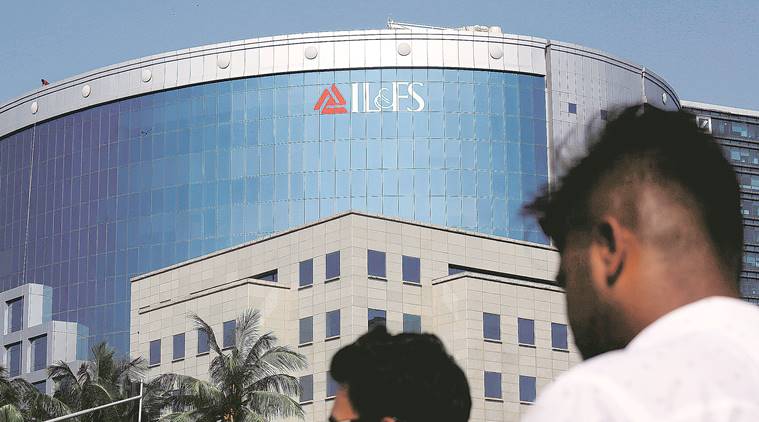The government, at the highest level, is said to be against stepping in proactively to support or save non-banking finance companies (NBFCs), housing finance companies (HFCs), or mutual funds.
Sources in the government closely following the developments said there will be a “moral hazard” if the government bears the cost of risky actions of NBFCs. In its own assessment, the government also thinks that while the current liquidity crunch will impede growth, it is unlikely to lead to a full-blown crisis.

Analysts and market players are, however, extremely worried that the crisis triggered by the IL&FS default last June and now by Dewan Housing Finance Ltd (DHFL) may lead to a contagion and take down other finance companies.
Story continues below this ad
IL&FS had a total outstanding debt of Rs 99,354 crore April-end, and the quantum of DHFL debt recently downgraded to D category recently is Rs 1,02,563 crore.
Lack of funds or credit to roll over short-term debt falling due in the coming months can potentially affect other non-banking companies and may lead to more defaults in the NBFC sector. This may spill over with adverse second-round impact that could be felt on real estate and construction firms, analysts warn.
Editorial | NBFC crisis could accentuate contagion risk in financial sector. Cabinet committee on investment and growth must address it
Expressing the gravity of the situation, a senior analyst in a top FII told The Indian Express, “The RBI did not address the issue in its policy. The stock market dropped 554 points last Thursday despite a 25-basis point rate cut. It is past the time to ask if government action poses a ‘moral hazard’.”
Story continues below this ad
ExplainedGovt hopes for clean-up within
The liquidity crunch is painful for NBFCs and while the government is aware that growth may be hit in the short-run, it discounts a full-blown crisis. It has noted how NBFCs have begun to put their house in order — raising funds or setting up stronger checks for credit valuation. So unless there is a domino effect, the government will wait and watch, hoping that the system cleans itself up.
Sources said the government has been monitoring the situation since the first default by IL&FS in June 2018. Some Cabinet Ministers and top officials in the Prime Minister’s Office have been meeting analysts and are being regularly updated with information flowing in from public sector bank chiefs, mutual fund CEOs and top FIIs.
The government’s risk perception, sources said, suggests that the tight liquidity conditions will slow down GDP growth in the short term but does not share the alarm among many in the market — that the crisis could blow up. Instead, the government’s view is that IL&FS and DHFL and their mess within can be ring-fenced.
“The pain is bearable. if an NBFC fails, so be it. The belief is that the sector, which flourished in a lax regulatory regime, will emerge stronger after this round,” said a source who did not wish to be named. The source said the system was “getting mature” over the last eight months and this pain was probably necessary from the perspective of future credit behaviour.
Sources also underline that the government is well aware of the risk of a contagion. Sources said if there is a domino effect, the government will definitely intervene. For instance, government-owned life insurer LIC offered to subscribe to DHFL papers worth Rs 3,000 crore in January this year. “Ahead of Lok Sabha elections, the government did not want any escalation,” the source said.
Story continues below this ad
“But the message, for now, is loud and clear. NBFCs are selling assets for liquidity, some are selling profitable subsidiaries to shore up their cash, some are going for IPOs, and some even diluting their equity to raise more money from foreign investors, hoping it will perk up their market capitalization,” said another source.
For instance, DHFL is selling its entire 49 per cent stake in Avanse Financial Services Ltd, an education-focused NBFC. DHFL and its parent Wadhawan Global Capital, plan to sell their 9.15 per cent and 70 per cent stake, respectively in Aadhaar Housing Finance Ltd, to raise another Rs 2,500 crore.
Edelweiss Financial Services Ltd, another big NBFC, plans to sell minority stakes in its subsidiary Edelweiss Insurance Brokers Ltd and also in Edelweiss Global Wealth and Asset Management. “This is to ensure that Edelweiss survives and emerges from this crisis to play the second round,” said a source.
Some major real-estate companies too are tiding over the current credit shortage by liquidating their assets or selling part stakes. Indiabulls Real Estate, for example, plans to sell about 12 per cent of promoter holding in the company to focus more on financial services. Similarly, real estate giant Shapoorji Pallonji is listing one of its arms to raise Rs 4,500 crore.

 IL&FS had a total outstanding debt of Rs 99,354 crore April-end, and the quantum of DHFL debt recently downgraded to D category recently is Rs 1,02,563 crore. Reuters/File
IL&FS had a total outstanding debt of Rs 99,354 crore April-end, and the quantum of DHFL debt recently downgraded to D category recently is Rs 1,02,563 crore. Reuters/File






























